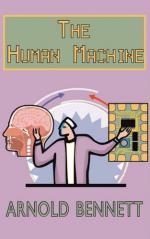In the application of any system of perfecting the machine, no two persons will succeed equally. From the disappointed tone of some of your criticisms it might be fancied that I had advertised a system for making archangels out of tailors’ dummies. Such was not my hope. I have no belief in miracles. But I know that when a thing is thoroughly well done it often has the air of being a miracle. My sole aim is to insist that every man shall perfect his machine to the best of his powers, not to the best of somebody else’s powers. I do not indulge in any hope that a man can be better than his best self. I am, however, convinced that every man fails to be his best self a great deal oftener than he need fail—for the reason that his will-power, be it great or small, is not directed according to the principles of common sense.
Common sense will surely lead a man to ask the question: ’Why did my actions yesterday contradict my reason?’ The reply to this question will nearly always be: ‘Because at the critical moment I forgot.’ The supreme explanation of the abortive results of so many efforts at self-alteration, the supreme explanation of our frequent miserable scurrying into a doctrine of fatalism, is simple forgetfulness. It is not force that we lack, but the skill to remember exactly what our reason would have us do or think at the moment itself. How is this skill to be acquired? It can only be acquired, as skill at games is acquired, by practice; by the training of the organ involved to such a point that the organ acts rightly by instinct instead of wrongly by instinct. There are degrees of success in this procedure, but there is no such phenomenon as complete failure.
Habits which increase friction can be replaced by habits which lessen friction. Habits which arrest development can be replaced by habits which encourage development. And as a habit is formed naturally, so it can be formed artificially, by imitation of the unconscious process, by accustoming the brain to the new idea. Let me, as an example, refer again to the minor subject of daily friction, and, within that subject, to the influence of tone. A man employs a frictional tone through habit. The frictional tone is an instinct with him. But if he had a quarter of an hour to reflect before speaking, and if during that quarter of an hour he could always listen to arguments against the frictional tone, his use of the frictional tone would rapidly diminish;




